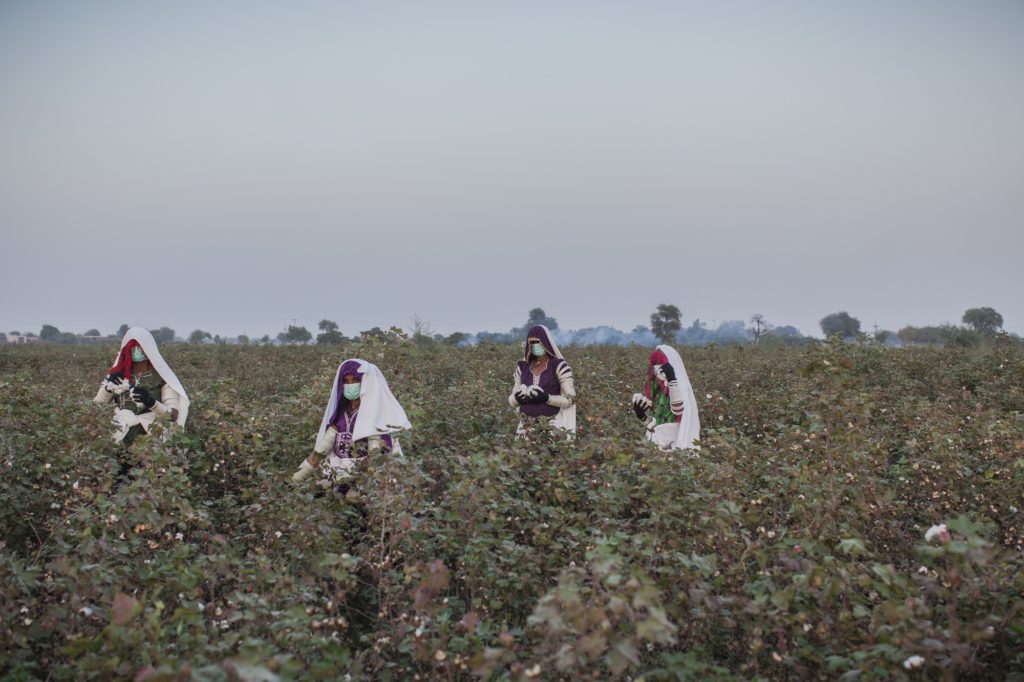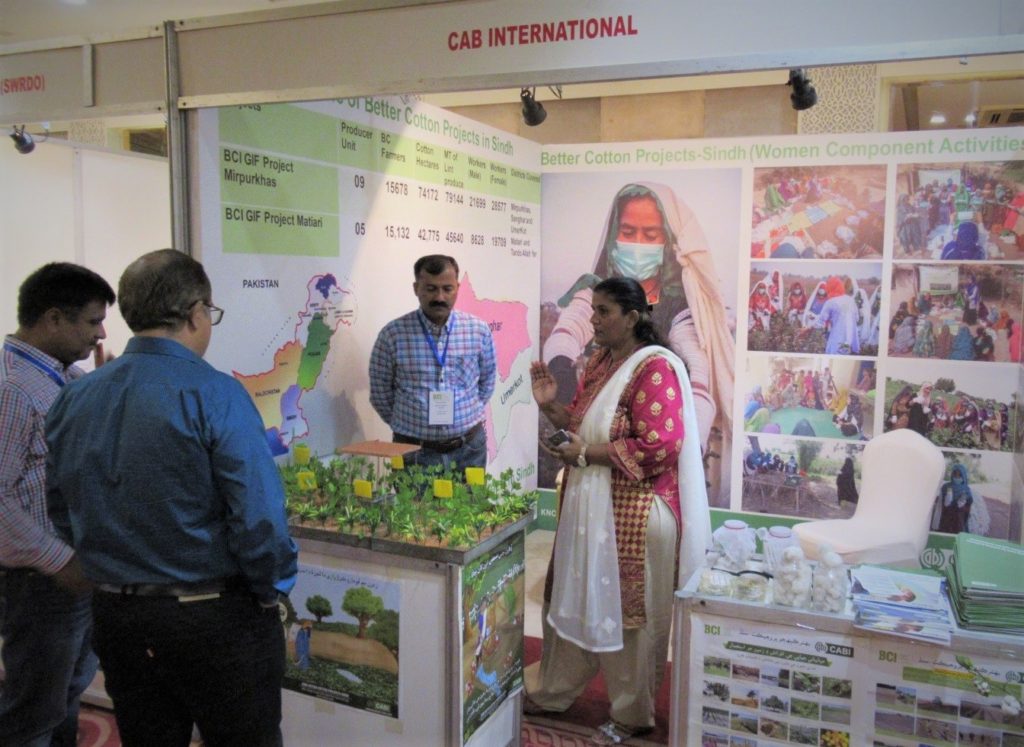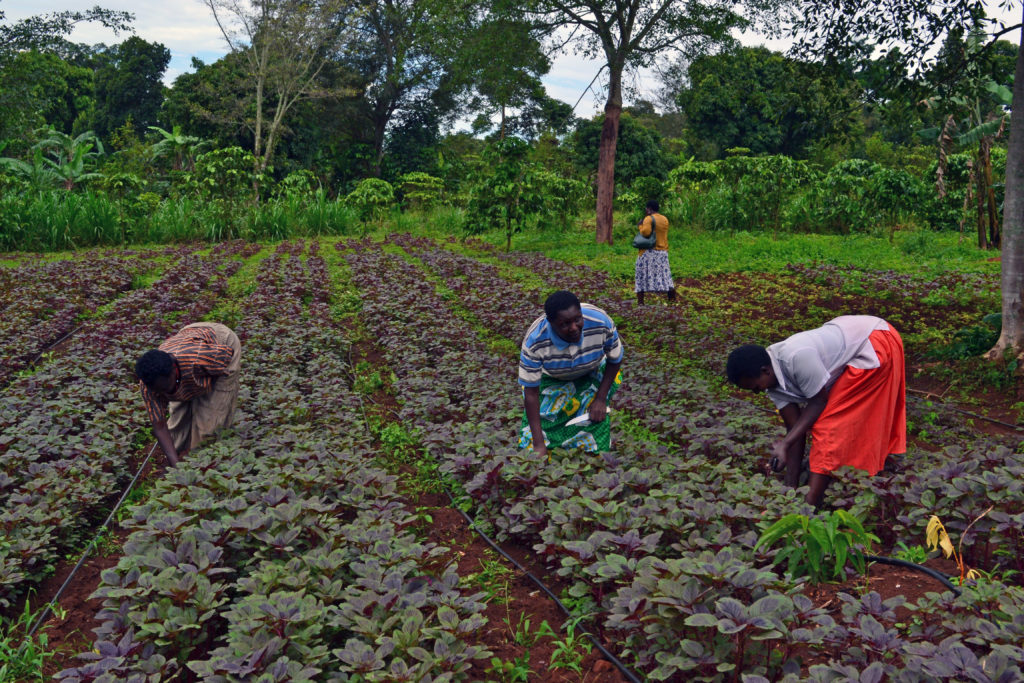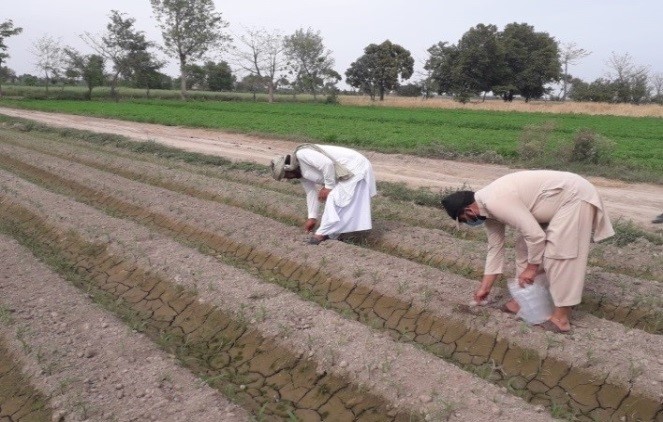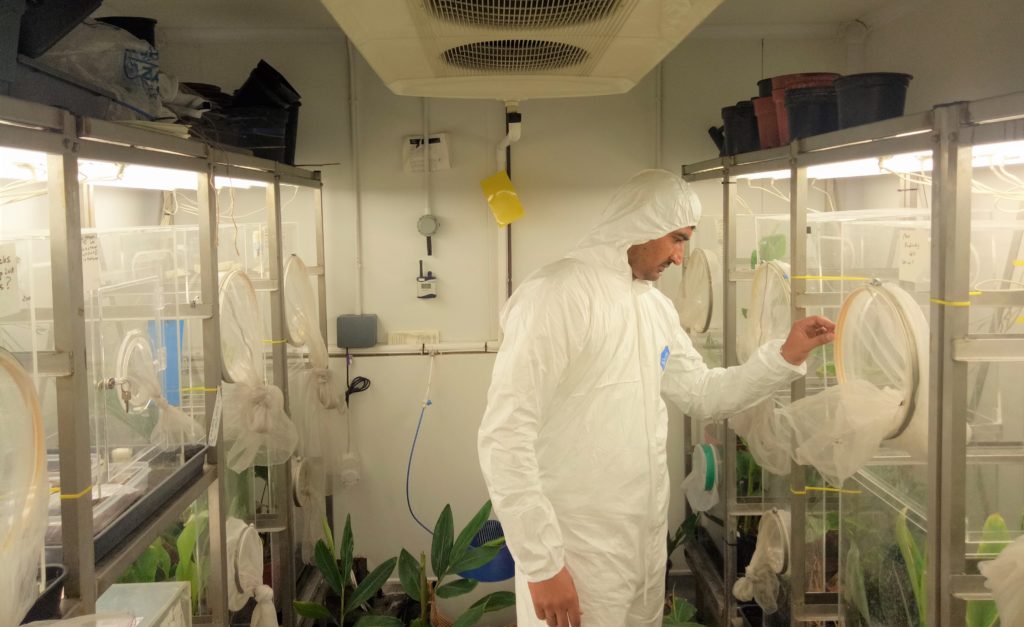Applying science to eradicate poverty
Today, 17 October 2019, is the International Day for the Eradication of Poverty. We’re taking a look at how science-based knowledge in three areas of international development – crop health, digital development and invasive species – has helped to lift people living in poor rural communities out of poverty and made a positive difference to…
Striving for Organic Agriculture Policy and Non-GMO Seed Multiplication in Pakistan
Around 25 million agricultural workers in developing countries suffer from pesticide poisoning each year – including a significant number of women, says the World Health Organization (WHO). The presence of pesticides in food items and their accumulation in tissues has direct toxic effects on humans and other non-target organisms. There are serious ecological and environmental…
Cotton farmer reveals the benefits of sustainable pest management strategies in Pakistan
A cotton farmer from Pakistan has revealed how support from CABI, as part of the Better Cotton Initiative (BCI), is helping her implement more sustainable pest management strategies to protect her crops and produce higher and more profitable yields.
Bursary improves cross-CABI collaboration for more effective international development work
A strength of CABI is its work on a global scale addressing global and local problems in agriculture. CABI can rely on its network of experts among various CABI centres, laboratories, project offices in many countries and world regions. To maintain this strength, a CABI Development Bursary was created to aid new experts to visit…
How African Indigenous Vegetables production in Uganda revealed empowered women but struggles in the private sector
African Indigenous Vegetables (AIVs) are a good source of essential vitamins and minerals including micro-nutrients, supplementary protein, fibre, and calories. However, despite their nutritional value, these vegetables have not been a high priority in food programmes. As a result, adequate resources have historically not been allocated to promote their production and consumption. This compounds the…
Field trials of biocontrol product are paving way for aflatoxins control in Pakistan
By Dr Sabyan Faris Honey, CABI, and Deborah Hamilton, USDA CABI as lead implementing partner along with its technical partner, Pakistan Agricultural Research Council (PARC) is working on a public-private partnership program led by U.S. company, Ingredion and its Pakistani subsidiary, Rafhan Maize to protect health and nutrition of Pakistan’s citizens by keeping food supply…
From Islamabad to Egham: Sharing quarantine best practice to fight Parthenium weed in Pakistan
Biocontrol Research Officer Dr Kazam Ali from Islamabad has undergone an intensive week-long quarantine management course delivered by CABI colleagues in Egham, UK, as part of a joint focus on fighting the highly invasive and destructive Parthenium weed in Pakistan. Dr Ali, who works at a new quarantine facility built to create greater capacity for…



